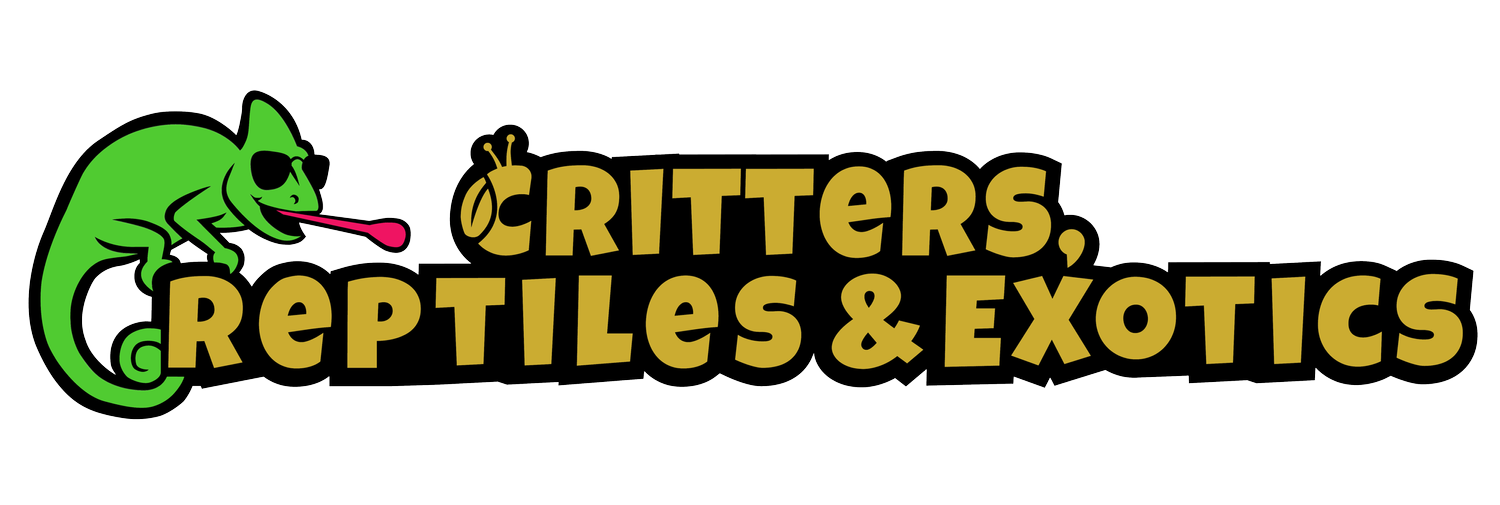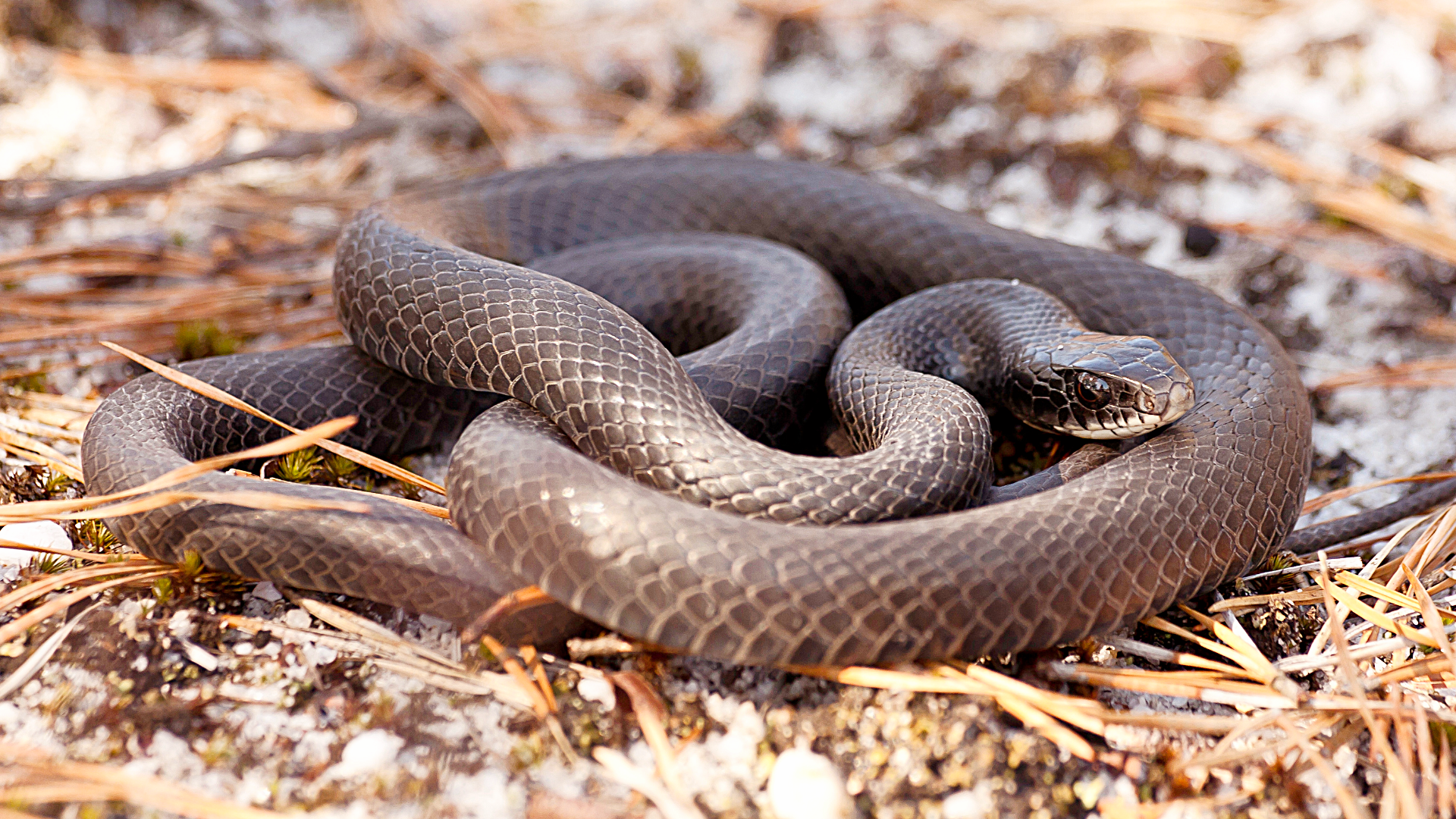Caring for your Black Pine Snake
Black Pine Snake
Pituophis catenifer sayi
Basic Information:
The Black Pine Snake is a rare, robust colubrid native to the longleaf pine forests of the southeastern United States. Known for its striking jet-black appearance and powerful, inquisitive nature, this subspecies is federally protected in the wild and bred in captivity by select keepers. They are intelligent, bold snakes with strong personalities.
Lifespan:
15–25 years in captivity
Sexing:
Males are generally smaller and thinner, while females are larger and heavier-bodied. Sexing is most accurately done by probing or experienced handling.
Enclosure:
Minimum for adults is a 4x2x2 enclosure.
Escape-proof lid is essential—milk snakes are excellent at finding gaps
Substrate:
Aspen, coconut husk, or a soil/sand mix for naturalistic setups
3–4 inches deep to allow burrowing
Spot clean weekly; full substrate change every 4–6 weeks
Lighting & Temperature:
Basking Spot: 88-92°F
Ambient Temperature: 78–82°F
Cool Side: 72–78°F
No special UVB required, but a low-level UVB bulb (5.0) may provide additional benefits.
Use a thermostat-regulated heat mat or ceramic heat emitter if needed for nighttime temps.
Humidity:
Maintain 30-50% humidity.
Increase slightly during shedding with light misting or a humid hide.
Food:
Feed appropriately sized frozen-thawed rodents (mice or rats depending on size).
Juveniles: every 5–7 days|
Adults: every 7–14 days
Do not handle for at least 48 hours after feeding to prevent regurgitation.
Water:
Provide clean water in a sturdy dish large enough for soaking.
Change water daily or when soiled.
Supplementation:
None typically needed if fed a proper diet of whole prey.
Calcium or multivitamin supplementation is not necessary for kingsnakes.
Their bold personality, impressive size, and rarity make the Black Pine Snake a favorite for experienced keepers. When handled regularly and provided with a stimulating enclosure, they become confident and rewarding snakes that stand out in any collection.


